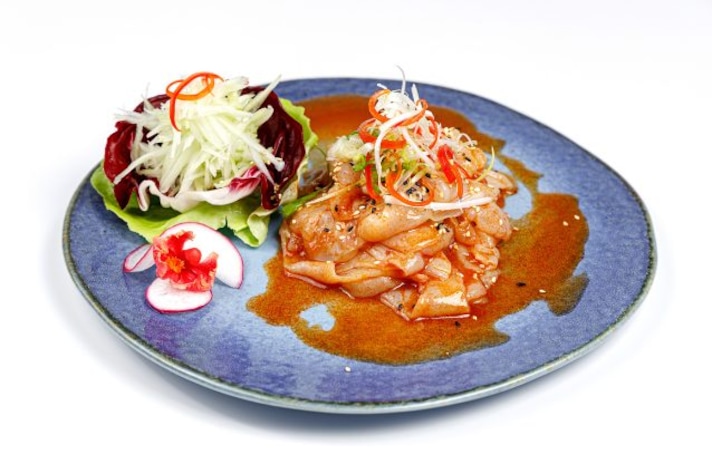Did You Know Jellyfish Are Edible?
Have you ever wondered what jellyfish would taste like? Well, you dont have to for longer. There are indeed cultures that enjoy jellyfish delicacies and whether you're a seasoned foodie or not, brace yourself for a whimsical experience before you give it a try. Here’s everything we know.

Seafood dishes are enjoyed in different cultures not only for their delicious taste profile but because they provide a quality range of nutrients. But, you have most likely never considered eating jellyfish. While jellyfish are commonly known for their graceful movements in the ocean, they are also beginning to grow popular on the food scene for making nutritious meals.
Still, there are important things to consider before trying to prepare a jellyfish dish. You must understand the cultural traditions associated with it, various ways to apply it, the nutritional benefits, and sustainable harvesting practices involved.
The Cultural Significance of Jellyfish in Asian Cuisine
Jellyfish has been a staple in various food traditions around the world for centuries, particularly in Asian cuisines such as Chinese, Japanese, and Korean. In these cultures, jellyfish is prized for its delicate texture, subtle flavor, and ability to absorb other flavors in dishes. From crispy salads to savory stir-fries, jellyfish adds a distinctive touch to a wide range of dishes and celebrations.

One of the most remarkable qualities of jellyfish is its versatility. Depending on the species and preparation method, you can enjoy jellyfish in various forms, including raw, marinated, pickled, or dried. Each preparation method yields a unique texture and flavor profile, allowing room to experiment with different recipes and flavor combinations.
Jellyfish Has Immense Nutritional Value
Whether enjoyed as an Asian delicacy or applied in Western dishes, you will love the jellyfish for being nutrient-dense and unique taste profile. Despite its delicate texture and mild flavor, jellyfish packs a nutritional punch, boasting low calories and fat content.
It is rich in protein, essential for muscle repair and growth, while also providing vital vitamins and minerals like calcium, magnesium, and iron. Additionally, jellyfish contains collagen, known for its potential benefits for skin and joint health. While it may not be a dietary staple for everyone, incorporating jellyfish into a balanced diet can offer unique nutritional benefits.

Is Consuming Jellyfish Environmentally Responsible?
As we grapple with concerns about overfishing and our impact on the environment, it's important to think about what eating jellyfish means for our oceans. Luckily, jellyfish are pretty abundant in many parts of the sea, and they breed like there's no tomorrow. This could make them a sustainable seafood option, but only if we're careful about how we catch them. We need to make sure we're not catching too many or accidentally catching other marine animals in the process. By being mindful of how we harvest jellyfish, we can help keep their populations healthy and protect the diversity of marine life in our oceans.
;Resize,width=767;)
;Resize,width=712;)
;Resize,width=712;)
;Resize,width=712;)
